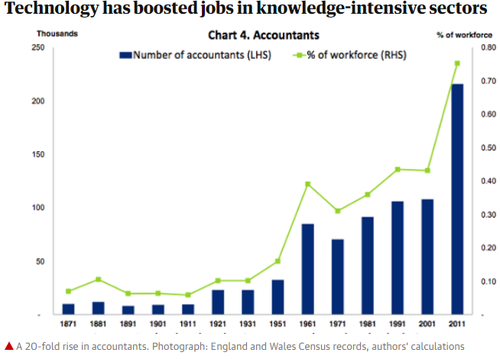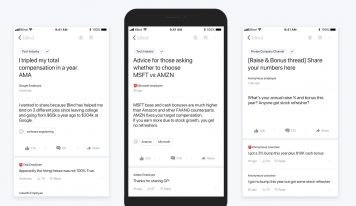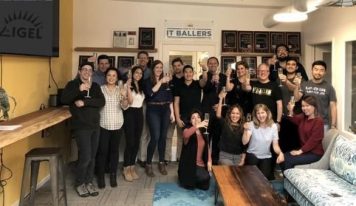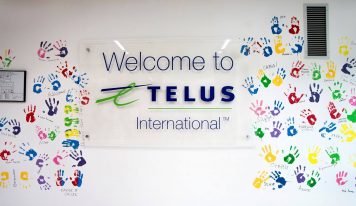The experts tell us there will be no jobs in the future but they also told us we would run out of:
-
Oil
-
Food
-
Working computers (Y2k)
-
Fresh air due to smog
-
Copper
-
Nitrogen in the soil
-
Oxygen in the water
They further say, as a result, we need to rely on the government to support the population via universal basic income or UBI.
Even Bill Gates who has transformed the world through tech innovation argued we should tax robots to slow innovation and use the money to hire people. Virtually all the other top tech billionaires and Warren Buffet seem to agree.
But as we mentioned above, the experts seem to be very wrong about so many major predictions. It is actually very difficult to think of predictions that they got right.
Over time, improvements in agricultural techniques and technology meant an industry which created almost all the jobs went to creating almost no jobs. In the developed world, the same thing happened to manufacturing and mining.
Why didn’t we need to slow these transitions? Or the transition created by the industrial revolution? The mainframe? The PC? The ATM machine? The vacuum cleaner? The washing machine? The list goes on and on.
Yet new jobs – ones no one could ever think of like Uber driver or AirBnB worker have been created and in the U.S we have millions of jobs more than available workers.
Last month’s Future of Work Expo focused on the positives of work – AI and human interaction. How can AI and better collaboration make workers more productive and efficient.
At a recent Future of Work Forum, there was agreement that demographic shifts will have more impact than AI on the workplace.
“Most jobs are more complex than [many people] realize,” said Google’s chief economist, Hal Varian.
Today’s workforce is sharply divided by levels of education, and those who have not gone beyond high school are affected the most by long-term changes in the economy, says David Autor, professor of economics at the Massachusetts Institute of Technology. “It’s a great time to be young and educated. But there’s no clear land of opportunity” for adults who haven’t been to college, said Autor, during his keynote presentation at the forum.
Perhaps most important of all, Varian finds that the demographic effect on the labor market is 53% larger than the automation effect. Thus, real wages are more likely to increase than to decrease when both factors are considered.
Why hasn’t automation had a more significant effect on the economy to date? The answer isn’t simple, but there’s one key factor: Jobs are made up of a myriad of tasks, many of which are not easily automated. “Automation doesn’t generally eliminate jobs. Automation generally eliminates dull, tedious, and repetitive tasks. If you remove all the tasks, you remove the job. But that’s rare,” Varian says.
Consider the job of a gardener. Gardeners have to mow and water a lawn, prune rose bushes, rake leaves, eradicate pests, and perform a variety of other chores. Mowing and watering are easy tasks to automate, but other chores would cost too much to automate or would be beyond the capabilities of machines — so gardeners are still in demand.
Jobs, unlike repetitive tasks, tend not to disappear. In 1950, the U.S. Census Bureau listed 250 separate jobs. Since then, the only one to be completely eliminated is that of elevator operator, Varian says. But some of the tasks carried out by elevator operators, such as greeting visitors and guiding them to the right office, have been distributed to receptionists and security guards.
Bill Gates has been a big proponent of protecting workers by taxing technology that will take their jobs. But if we take the example of Microsoft inventing Excel, a graphical take on Lotus 123, it was responsible for taking away hours of accounting work, replacing paper and pencil.
Did Excel eliminate accountants? Quite the contrary, by allowing for more sophisticated modeling, accountants became even more important as they became more efficient. As Excel has added the ability to work with AI systems, the value of accountants using this leading-edge technology has increased dramatically.
It is difficult to predict the future of economies which are so dynamic and complex but we know the future of work will continue to disrupt itself.
We also know that 140 years of data shows technology has created more jobs than it has destroyed.
We should be careful not to give too much weight to the doom-and-gloom “experts” because automation can have its limits. Perhaps the best recent evidence of this fact is when Elon Musk reduced the percentage of robots producing cars in Tesla’s factories. When asked about it, he said, “Humans are underrated.”
If you are interested in the Future of Work as a speaker, exhibitor or conferee, we’d love to host you at Future of Work Expo, Florida, Feb 12-14, 2020. The Call for speakers ends May 1st, 2019 so please submit ASAP.








